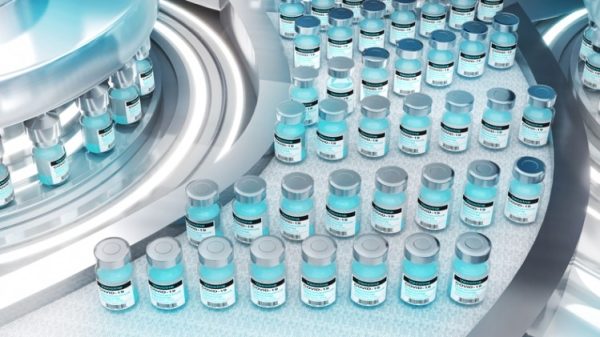The Africa Centres for Disease Control and Prevention (Africa CDC), in collaboration with Team Europe, the African Vaccine Manufacturing Initiative (AVMI), and Ghana’s National Vaccine Institute (NVI), has convened a three-day sensitisation workshop in Accra to accelerate technology transfer for African vaccine manufacturers.
In a webinar on Tuesday, Africa CDC explained that the workshop seeks to validate a draft companion guideline on technology transfer in biopharmaceutical manufacturing and reinforce efforts to build a sustainable vaccine production ecosystem on the continent.
The initiative forms part of the African Union’s Partnership for African Vaccine Manufacturing (PAVM), launched in 2021 to ensure Africa produces 60 per cent of its vaccine needs by 2040. The AU has since expanded PAVM’s mandate into the broader Platform for Harmonised African Health Products Manufacturing (PHAHM), which also includes medicines, diagnostics, and other health products.
Speaking at the event, Dr. Simon Agwale, Vice Chair of the AVMI Board of Directors and Chair of its Technology Working Group, stressed the urgency of reducing Africa’s dependence on external partners for vaccine supply and technology.
“The best time to plant a tree was 20 years ago; the next best time is now,” Agwale said.
He noted that despite accounting for 17 per cent of the world’s population, Africa currently produces less than one per cent of its vaccines.
“Key African vaccine manufacturers such as Biovac (South Africa), Innovative Biotech and Biovaccines (Nigeria), Afrigen (South Africa), and the Institut Pasteur de Dakar (Senegal) are emerging as leaders in vaccine R&D and biomanufacturing,” he added. “They are focusing on priority diseases including malaria, tuberculosis, HIV/AIDS, Lassa fever, Ebola, COVID-19, and HPV.”
Agwale said that through platforms such as PHAHM and the African Vaccine Acquisition Trust (AVAT), the continent aims to achieve its 60 per cent local production target by 2040.
By the end of the Accra workshop, organisers expect to finalise the technology transfer companion guideline, which will allow regulators, manufacturers, and partners to better align their efforts and advance Africa’s vaccine self-sufficiency agenda.
Participants at the event include representatives from vaccine manufacturers across 15 African countries, national regulatory authorities, the World Health Organisation (WHO), and other technical partners.
The draft guideline being reviewed in Accra was first developed at a consultative meeting in Johannesburg in March. The workshop will now refine it further, ensuring it is practical and actionable for African manufacturers.


